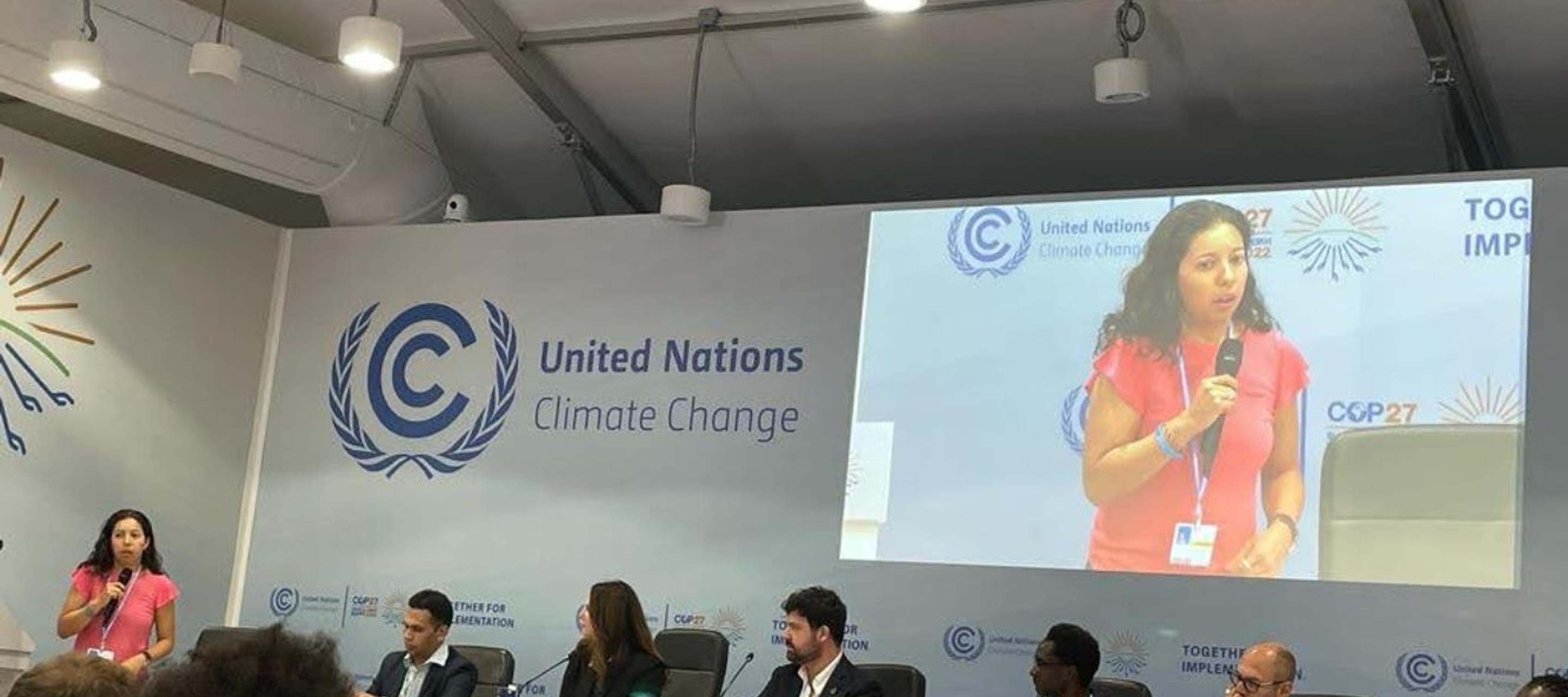Futures Lab: just transition and the future of work - COP 27
11 November 2020

This session at COP27 was hosted by the UN High-level Champions, ITUC, Skill lab and Clean Cooking Alliance. It shared best practices from trade unions, employers and governments that promote productive employment and decent work for all, as we experience labour restructuring due to the ecological transition. IHRB’s Alejandra Rivera participated as a respondent to this discussion relating the key takeaways from the speakers to the big picture of what a “Just Transition” entails including the role and responsibilities of each sector.
The future lab included a foresight exercise imagining we are in 2050: “How does 2050 look like?
What did we do right now to ensure a just and equitable transition?” to this, and as closing remarks, Alejandra responded:
To achieve a just and equitable transition from now until 2050, our actions were based in the human rights principles of non-discrimination, freedom of association and speech, no forced labor, and no child labor. This is a framework, that we do have from the ILO, but its implementation is more challenging. For that, it is important to recognise the roles of the various sectors. Referencing the UNGP for Human Rights and Business, governments have the duty to protect these human rights, businesses to respect them, and [in addition by Alejandra] civil society to advocate for them.
This means in practice:
- Governments have a legal framework at national level to protect labour rights and efficient and reliable authority bodies to enforce it. They should also lead by example with high working standards required in public procurement.
- Businesses commit to respect labour rights and uphold a high level of working and living conditions for their employees. Companies translate these commitments into internal policies and standard operating procedures to respect labour rights in their operations, in addition to in their CSR.
- Workers have the freedom and empowerment to demand good treatment and employment conditions, and they are given the knowledge, skills, and tools to be able to contribute meaningfully in their workplace.
- Consumers have visibility and awareness of the supply chain processes, the risks to human rights throughout, and use consumer behavior to put pressure on companies and governments to improve working standards.
- Public and private finance includes respect for human rights in ESG sustainability standards and impact investment frameworks
In conclusion, the changes needed for a just transition in the future of work are not only in re-skilling and training workers, but every single sector must make changes to their internal procedures. Only like that we will collectively achieve human dignity for all workers, and can accomplish a truly just and equitable transition.



